Form Ct-1040 Nr/py - Connecticut Nonresident And Part-Year Resident Income Tax Return And Instructions - 2012 Page 7
ADVERTISEMENT
Special Information for Nonresident Aliens
You are a resident for the 2012 taxable year if:
A nonresident alien must fi le a Connecticut income tax return if
• Connecticut was your domicile (permanent legal residence) for
he or she meets the requirements of Who Must File a Connecticut
the entire 2012 taxable year; or
Resident Return. In determining whether the gross income test is
• You maintained a permanent place of abode in Connecticut
met, the nonresident alien must take into account any income not
during the entire 2012 taxable year and spent a total of more
subject to federal income tax under an income tax treaty between
than 183 days in Connecticut during the 2012 taxable year.
the United States and the country of which the nonresident alien is
Nonresident aliens who meet either of these conditions are
a citizen or resident. Income tax treaty provisions are disregarded
considered Connecticut residents even if federal Form 1040NR-EZ
for Connecticut income tax purposes. Any treaty income reported
or federal Form 1040NR is fi led for federal income tax purposes.
on federal Form 1040NR or Form 1040NR-EZ and not subject to
See also Spouses With Different Residency Status on Page 16 and
federal income tax must be added to the nonresident alien’s federal
Special Information for Nonresident Aliens on this page.
adjusted gross income. See Form CT-1040, Schedule 1, Line 38,
If you are a resident, you must fi le Form CT-1040 if any of the
or Form CT-1040NR/PY, Schedule 1, Line 40.
following is true for the taxable year:
If the nonresident alien does not have and is not eligible for a
• You had Connecticut income taxes withheld;
Social Security Number (SSN), he or she must obtain an Individual
Taxpayer Identifi cation Number (ITIN) from the IRS and enter
• You made estimated tax payments or a payment with Form
it in the space provided for an SSN. You must have applied for
CT-1040 EXT to Connecticut;
and been issued an ITIN before you fi le your income tax return.
• You meet the gross income test;
However, if you have not received your ITIN by April 15, fi le
• You had a federal alternative minimum tax liability or
your return without the ITIN, enter Applied For or NRA in the
• You are claiming the Connecticut earned income tax credit
SSN fi eld, pay the tax due, and attach a copy of the federal Form
(CT EITC).
W-7. DRS will contact you upon receipt of your return and will
You are a part-year resident for the 2012 taxable year if you
hold your return until you receive your ITIN and you forward the
changed your permanent legal residence by moving into or out
information to us. If you fail to submit the information requested,
of Connecticut during the 2012 taxable year. Part-year residents
the processing of your return will be delayed.
may not elect to be treated as resident individuals.
A married nonresident alien may not fi le a joint Connecticut
If you are a part-year resident and you meet the requirements of
income tax return unless the nonresident alien is married to a
Who Must File Form CT-1040NR/PY for the 2012 taxable year,
citizen or resident of the United States and they have made an
you must fi le Form CT-1040NR/PY.
election to fi le a joint federal income tax return and they do, in fact,
fi le a joint federal income tax return. Any married individual fi ling
You are a nonresident for the 2012 taxable year if you are neither
federal Form 1040NR or federal Form 1040NR-EZ is not eligible
a resident nor a part-year resident for the 2012 taxable year.
to fi le a joint federal income tax return or a joint Connecticut
If you are a nonresident and you meet the requirements of Who
income tax return and must fi le a Connecticut income tax return
Must File Form CT-1040NR/PY for the 2012 taxable year, you
as a married individual fi ling separately except as noted below.
must fi le Form CT-1040NR/PY.
A spouse in a same-sex marriage who is a nonresident alien
Although you and your spouse fi le jointly for federal purposes, you
may fi le a joint Connecticut income tax return as long as his or
may be required to fi le separate Connecticut returns. See Spouses
her spouse is a citizen or resident of the United States. A spouse
With Different Residency Status, on Page 16.
fi ling federal Form 1040NR or federal Form 1040NR-EZ is not
If you meet all of the conditions in Group A or Group B, you
eligible to fi le a joint Connecticut income tax return and must
may be treated as a nonresident for 2012 even if your domicile
fi le a Connecticut income tax return as fi ling separately for
was Connecticut.
Connecticut only.
Group A
Resident, Part-Year Resident, or Nonresident
1. You did not maintain a permanent place of abode in
The following terms are used in this section:
Connecticut for the entire 2012 taxable year;
Domicile (permanent legal residence) is the place you intend to
2. You maintained a permanent place of abode outside of
have as your permanent home. It is the place you intend to return to
Connecticut for the entire 2012 taxable year; and
whenever you are away. You can have only one domicile although
3. You spent not more than 30 days in the aggregate in
you may have more than one place to live. Your domicile does not
Connecticut during the 2012 taxable year.
change until you move to a new location and defi nitely intend to
Group B
make your permanent home there. If you move to a new location
1. You were in a foreign country for at least 450 days during any
but intend to stay there only for a limited time (no matter how
period of 548 consecutive days;
long), your domicile does not change. This also applies if you are
working in a foreign country.
2. During this period of 548 consecutive days, you did not spend
more than 90 days in Connecticut and you did not maintain a
Permanent place of abode is a residence (a building or structure
permanent place of abode in Connecticut at which your spouse
where a person can live) that you permanently maintain, whether
(unless legally separated) or minor children spent more than
or not you own it, and generally includes a residence owned by or
90 days; and
leased to your spouse. A place of abode is not permanent if it is
maintained only during a temporary stay for the accomplishment
3. During the nonresident portion of the taxable year in which the
of a particular purpose.
548-day period begins, and during the nonresident portion of
the taxable year in which the 548-day period ends, you were
Page 7
ADVERTISEMENT
0 votes
Related Articles
Related forms
Related Categories
Parent category: Financial
 1
1 2
2 3
3 4
4 5
5 6
6 7
7 8
8 9
9 10
10 11
11 12
12 13
13 14
14 15
15 16
16 17
17 18
18 19
19 20
20 21
21 22
22 23
23 24
24 25
25 26
26 27
27 28
28 29
29 30
30 31
31 32
32 33
33 34
34 35
35 36
36 37
37 38
38 39
39 40
40 41
41 42
42 43
43 44
44 45
45 46
46 47
47 48
48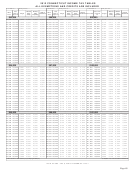 49
49 50
50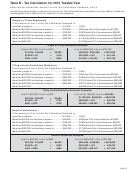 51
51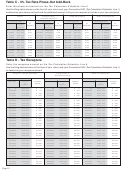 52
52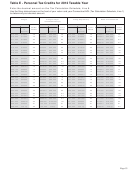 53
53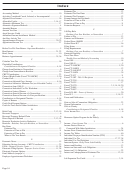 54
54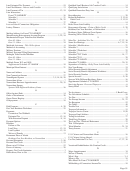 55
55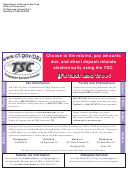 56
56








